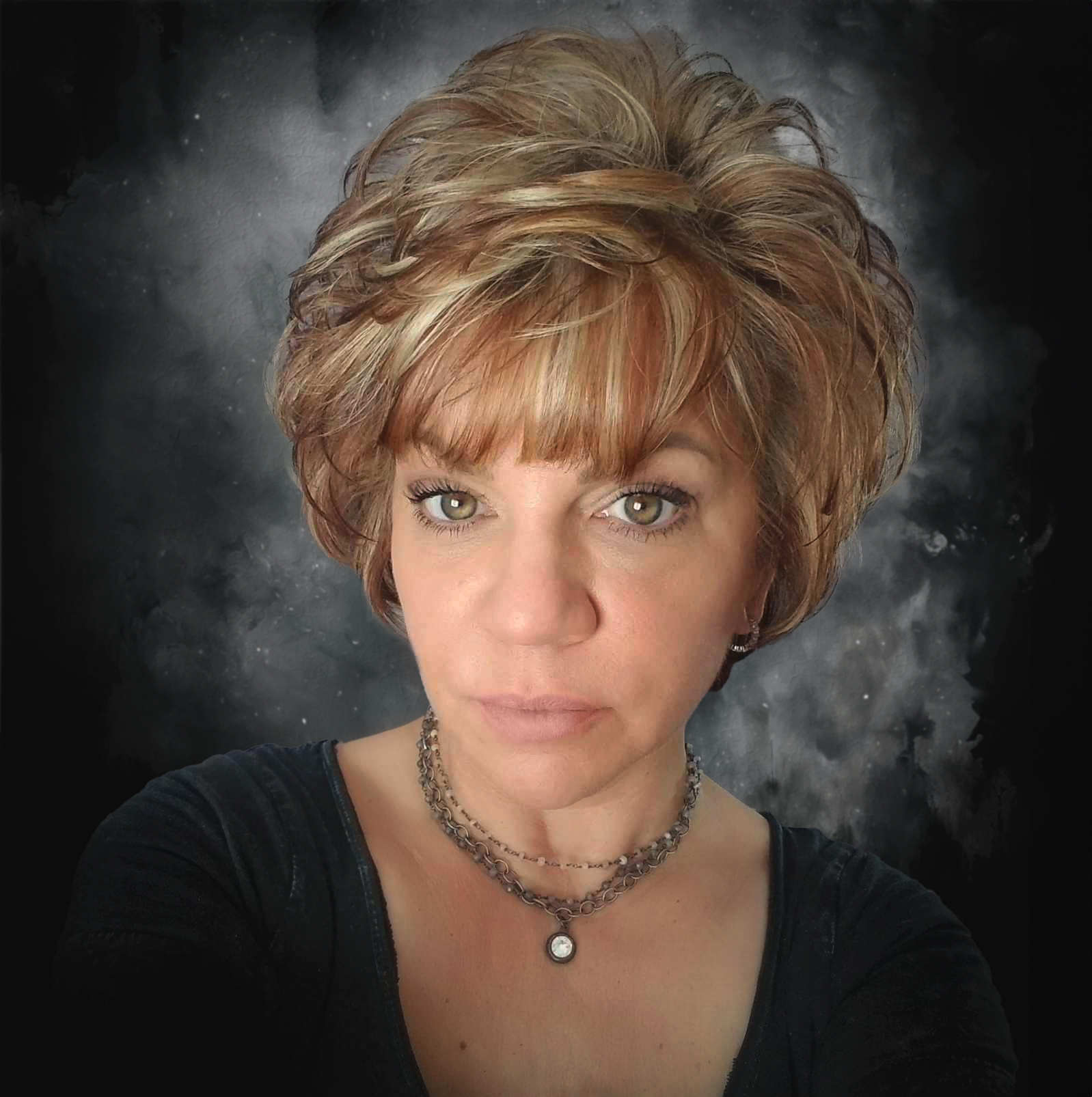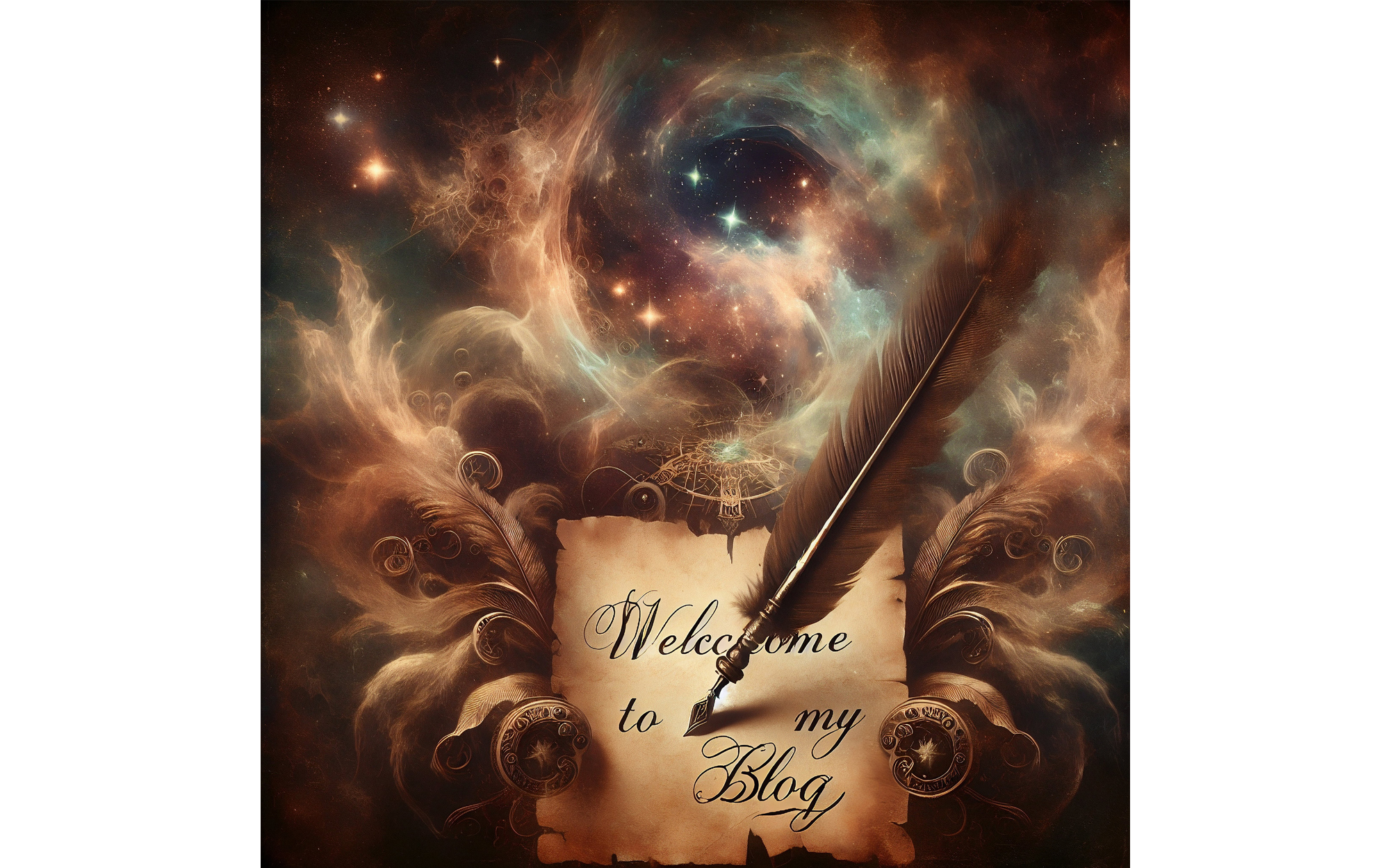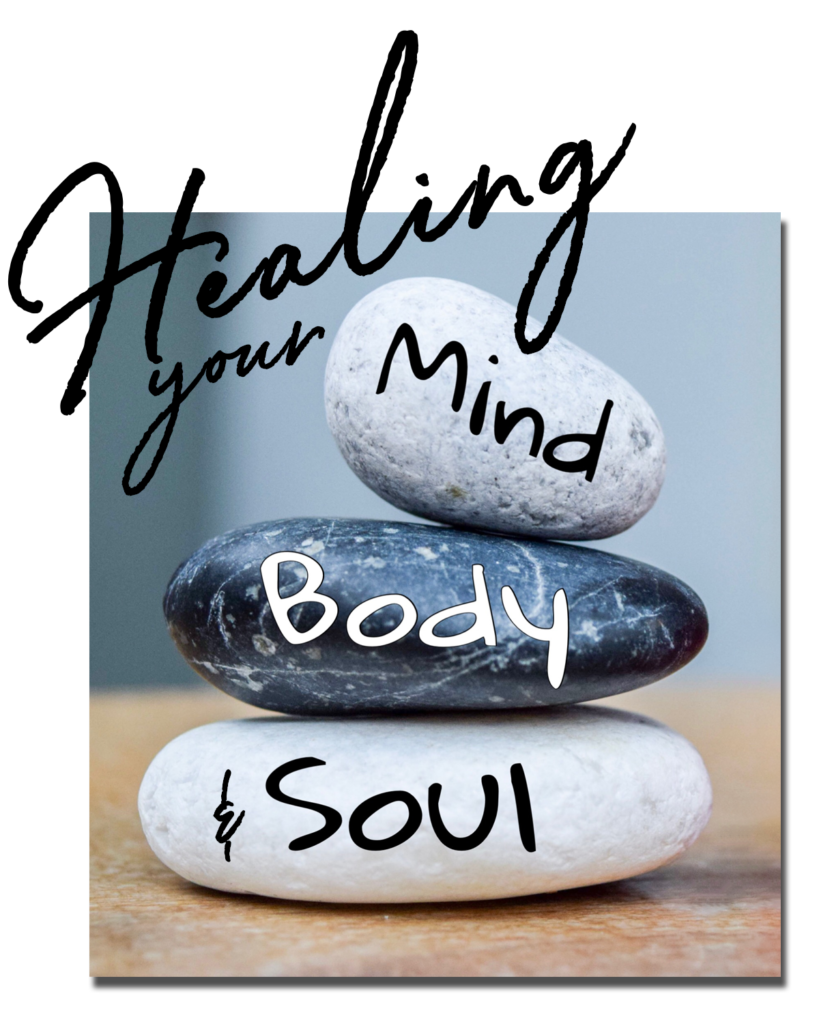
by Cindy Baxter | Aug 16, 2024 | General
What if you looked at challenging people as teachers in disguise? These challenging characters arrive precisely when you needed them most. It’s common for us to view difficult interactions with others as disruptions to our peace. But what if these challenges are essential for your soul’s growth? They may not be entering our lives to create chaos. Instead, they push us toward deeper understanding, emotional resilience, and spiritual evolution. These individuals act as catalysts, prompting us to look inward and confront the aspects of ourselves that require healing.
Difficult people are the greatest teachers. They reveal our weaknesses, vulnerabilities, and give us opportunities to rise above them.
– Cindy Baxter
Difficult People: Teachers Who Reflect Our Hidden Strengths

Think about that coworker who challenges you at every turn. These challenging people are teachers in disguise, pushing you to develop assertiveness. They question your decisions and test your patience. While it’s easy to view them as obstacles, what if they’re here to help you grow? They may be teaching you to trust your instincts, stand your ground, and set boundaries. Through their resistance, they make you stronger. These lessons will serve you in all areas of life, helping you become more self-assured.
The Lesson of Self-Worth
Now consider a family member who never seems satisfied, no matter how much you do to please them. Perhaps they are teaching you the crucial lesson of self-worth. You cannot rely on external validation to feel good about yourself. By facing their impossible expectations, you’re invited to look within. Your value isn’t dependent on others’ opinions. These situations challenge you to cultivate self-love and acceptance. You will begin to realize that your worth comes from within. Every time I encounter someone challenging, I pause and ask my higher self, God, Source, or the Universe, “What am I meant to learn from this situation?” Embracing the belief that life is happening for you, not to you, can change everything. Every experience is an opportunity for growth. Now that I’ve healed from six decades of what I once saw as abuse, I realize I was never a victim of criticism or betrayal. Instead, I was a student of profound lessons, leading me to a deeper understanding of life in general and to a profound personal transformation.
A Shift in Perspective
If you can you take a step back and look at these challenging people and situations more objectively, I promise, your life will transform before your very eyes.
My Personal Journey: Lessons from a Critical Mother
This lesson really hit home. My mother was extremely critical of me—I could never do anything good enough in her eyes. For years, I constantly strived for her approval. While her criticism was harsh and hurtful, I now see that it was a pivotal factor in shaping who I am today. It became one of the key reasons I’ve successfully run a business for over four decades. Her inability to recognize my worth pushed me to strive for perfection and to please her in every way I could. The criticism turned me into a people-pleaser, a trait my clients appreciated. However, in hindsight, people-pleasing is not a skill one should strive for. Still, in my case, it served me well in building an extraordinary photography career, one in which I am very proud.
The Healing Power of Challenging Relationships
There always seems to be that friend or romantic partner who triggers our deepest insecurities. They make us feel inadequate or unworthy. While their behavior is extremely hurtful, what if they are here to illuminate the unresolved wounds within us that need healing? Through your interactions with them, you are given the opportunity to confront those parts of yourself that feel small, scared, or unworthy. Though difficult, these relationships guide you to a deeper level of self-awareness. They help you recognize and heal the insecurities that have held you back.
Viewing Challenging Relationships as Opportunities: Embracing Teachers in Disguise
Life often presents us with relationships that are challenging, sometimes even painful. These experiences can feel overwhelming, and they may pierce deep into our hearts and egos. The hurtful words, actions, and behaviors of others can leave lasting scars, making us feel unworthy, rejected, or misunderstood. But in those moments, it’s important to remember that these aren’t just random acts of cruelty or personal attacks—they are lessons, opportunities for growth, and invitations to heal that our soul chose for our highest good.
Seeing the Bigger Picture
When we step back and reflect on these painful moments, we begin to see a different perspective. It’s easy to internalize the hurt, thinking it’s a reflection of our flaws or shortcomings. However, the truth is that the negative behavior of others rarely has anything to do with us at all. Their words and actions are often a mirror of their own unresolved pain and struggles. They’re expressing their own wounds, projecting them onto us, even if unknowingly.
There was a time when I felt overwhelmed by the actions of my mother and ex-husband, both of whom caused me emotional pain. Reflecting on the situation, I asked myself, “What happened to them in their lives that made them believe it was okay to treat me this way?” This shift in perspective allowed me to approach the situation with compassion instead of resentment. It became clear that their hurtful behavior wasn’t about me—it was rooted in their own unresolved traumas and pain.
The Gift of Empathy and Forgiveness
In that moment, I chose to feel empathy for them. I understood that their actions were a manifestation of their suffering, not a reflection of my worth. This realization opened my heart to forgiveness. Forgiveness, in this case, was not a gift to them—it was a powerful gift to myself. It freed me from the emotional burden of carrying resentment and allowed me to reclaim my peace.
The act of forgiving them was a profound turning point in my journey. It helped me release the grip that their behavior had on me, and it allowed me to heal. Instead of seeing them as villains in my story, I began to see them as fellow travelers on the path of pain, who were simply doing the best they could with the tools they had. This shift in perspective brought me a sense of peace and freedom that I had been seeking for so long.
When we can view the difficult people in our lives as teachers, rather than sources of suffering, we unlock the power to transform our pain into wisdom. And in doing so, we free ourselves from being bound by their actions and start walking the path of healing and self-love.
You Are Not Alone
If you are experiencing this in your life, you are not alone. I speak with people every day who suffer from relationships like this. In my own experience with a narcissistic mother and narcissistic romantic partners, feelings of unworthiness were always front and center. By the end of my last marriage, I could clearly see how my husband’s actions triggered the emotional wounds left by my mother. That relationship, as difficult as it was, served as the catalyst for deep healing and self-love. In hindsight, he was a gift—a painful yet invaluable one that led me to a path of profound growth and healing.
Difficult People as Mirrors for Self-Discovery
These difficult people, whether they are coworkers, family members, romantic partners, or friends, serve as mirrors. Remember, challenging people are teachers in disguise who reflect back the parts of ourselves that we might otherwise overlook. When someone triggers anger or frustration within us, it’s a signal to examine those emotions more closely. What are they revealing about our insecurities, fears, or unresolved wounds? By engaging with these difficult personalities, we embark on a profound journey of self-discovery.
The purpose of these challenges isn’t to break us down but to build us up. Each difficult person serves as a guide, albeit a tough one, showing us where we need to grow. They push us to set boundaries, teaching us the value of self-respect and self-preservation. In doing so, we learn to protect our peace while still engaging with the world around us. Boundaries aren’t just about keeping others at a distance; they’re about declaring our worth and ensuring that we honor our own needs.
Empathy and Forgiveness: The Keys to Your Personal Peace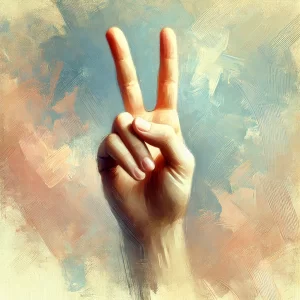
Moreover, these teachers invite us to practice forgiveness—not just for their actions, but for ourselves. Forgiveness allows us to release the grip of resentment that keeps us tethered to the past. It frees us to move forward with a lighter heart and a clearer mind. In forgiving others, we often find that we are the ones who benefit the most, as we reclaim our emotional freedom and peace of mind.
The Power of Empathy
But beyond boundaries and forgiveness, one of the most powerful lessons challenging people as teachers impart is empathy. It’s easy to react in anger when someone mistreats us, but we don’t always know the full story of their struggles. Perhaps that coworker who constantly challenges you is dealing with immense pressure at home, or the family member who criticizes you endlessly might be battling their own feelings of inadequacy. By extending empathy, we can shift our perspective, recognizing that everyone carries unseen burdens.
Take, for example, the familiar situation of someone cutting you off in traffic. Your first instinct might be to throw them a gesture of frustration—perhaps the “bird.” But before you react, consider this: when you flip that middle finger, it is simply just one finger away from the peace sign. Instead of reacting with anger, what if you threw them a little peace? You don’t know if they’re rushing to a loved one who’s in the hospital, desperately trying to make it in time. Or maybe they’ve just received devastating news and aren’t thinking clearly. Perhaps they’re overwhelmed by the stress of juggling work, finances, and family. When we choose to respond with empathy rather than anger, we offer a small gift of kindness to a world that often feels harsh.
Empathy and forgiveness for others is not about letting them off the hook; it’s about freeing yourself from the chains of bitterness and resentment. Holding on to anger and unforgiveness only keeps us bound to the past, allowing negative emotions to fester and erode our peace. Empathy allows us to transcend the boundaries of the self, stepping into the sacred space of another’s experience. It’s not about excusing their actions, but about choosing to protect our inner peace and emotional well-being. By forgiving, we break free from the grip of negativity, allowing ourselves the space to heal and move forward with clarity and tranquility.
For more insights on the transformative power of forgiveness, be sure to check out my blog post, ‘The Healing Power of Forgiveness.’
Embracing Challenging People as Catalysts for Spiritual Growth
In these challenging times, empathy serves as the bridge that connects hearts across the gaping chasms of misunderstanding and discord. When we practice empathy, we transcend the boundaries of the self, stepping into the sacred space of another’s experience. Such a profound act of communion is a testament to the interconnectedness of all beings. Consider walking in the shoes of another, feeling the weight of their struggles as if they were your own. In that moment of shared vulnerability, barriers dissolve, and understanding blooms like a fragile flower in the desert of indifference.
Ultimately, challenging people are teachers in disguise who come into our lives for a reason. They help us shed old patterns and rise to new levels of consciousness. Arriving in our lives at the right moments, they push us toward becoming the best version of ourselves. These difficult teachers help us heal deep wounds and guide us to new levels of growth. In the grand scheme of life, they are not here to harm us but to help us ascend. When we embrace this perspective, we begin to see that every encounter—no matter how challenging—is an opportunity for growth. We realize that these difficult teachers are guiding us toward the expansion of our soul, helping us become who we are truly meant to be.
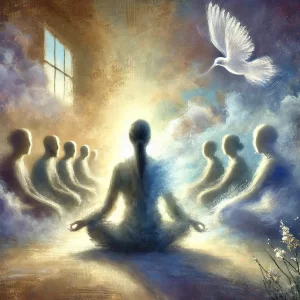 Let Me Guide You on Your Path to Peace
Let Me Guide You on Your Path to Peace
If you’re struggling with anger, betrayal, or facing a tough situation that’s weighing you down, consider reaching out to me for help. I understand your grief, your frustration, and your desire to find peace because I’ve lived it. My life has been filled with a myriad of unpleasant people—corrupt and thieving business partners, dishonest employees, backstabbing friends, cheating romantic partners, and even a narcissistic spouse and mother. In my six decades of life, I’ve learned many lessons, and perhaps the most important is that life will continue to throw you curveballs, teaching you lesson after lesson until you finally get it.
Believe me, my life hasn’t been the bed of roses that those on the outside believed it to be. Don’t get me wrong, I’ve had my share of great times, but unfortunately, those moments have long been forgotten. Isn’t it ironic that the good times roll by like water off a duck’s back, but the bad times, the challenging moments, cling to us like thorns in our hearts, refusing to let go? Spirituality has been the catalyst and my path to peace, helping me transform those thorns into seeds of growth. Let me guide you on a journey to your own path to peace.
How I Can Help
I’m Cindy Baxter, a Certified Emotion Code and Body Code Practitioner and Spiritual Life Coach. Through energy healing and spiritual life coaching, I’ve found my way back to peace and purpose, and I’m here to guide you on your own path to healing. Walk with me on a path to peace and leave life’s illusions behind.
Please follow this link to discover how the Emotion Code and Body Code can help you on your healing journey: HOW I CAN HELP
With love and light,
Cindy

by Cindy Baxter | Jun 23, 2024 | General
In this blog post, we will explore the transformative power of letting go and healing the past. Additionally, we will delve into practical steps for emotional release. Join me on this journey of forgiveness and healing. Let’s aim for a brighter, more fulfilling future.
“The beautiful journey of today can only begin when we learn to let go of yesterday.” – Steve Maraboli.
Letting Go: Healing Our Wounds
Letting go of past trauma can be one of the most challenging yet liberating experiences on our spiritual journey. Whether it’s loss, regret, or betrayal, holding onto these emotional burdens can ultimately prevent us from experiencing true peace and happiness. In this blog post, I will share my personal journey of healing. Embracing forgiveness and letting go transformed my life. Understanding Caroline Myss’s teachings and receiving divine guidance helped me release my pain. It allowed me to step into a brighter, more fulfilling future.
 Common Life Challenges in Letting Go
Common Life Challenges in Letting Go
Some common life challenges that people emotionally have trouble letting go of include:
Loss and Grief: The death of a loved one or the end of a relationship can bring intense emotions. These can be difficult to let go of.
Regret and Guilt: Past mistakes or decisions can weigh heavily on your mind and make it challenging to move on. Practicing self-forgiveness and learning from your mistakes is crucial to letting go of regret and guilt.
Traumatic Experiences: Traumatic events can leave a lasting impact on your emotional well-being. Seeking support from a therapist or counselor can help process the trauma and begin the healing process.
Resentment and Anger: Holding onto anger and resentment can be toxic to your mental health. Finding healthy ways to channel your emotions and practice forgiveness, both for yourself and others involved, is essential.
Fear and Anxiety: Constant worry and fear about the future can hinder personal growth and happiness. Practicing self-care, seeking professional help if needed, and challenging your negative thoughts can help let go of fear and anxiety.
Remember, letting go is a process that takes time and effort. It may be helpful to seek support from loved ones, therapists, or support groups to navigate through these challenges.
Caroline Myss and the Addiction to Wounds
Caroline Myss, in her book “Why People Don’t Heal and How They Can,” explains that healing requires forgiveness, and many people don’t heal because they are addicted to their wounds. People often resist forgiveness because it can feel like condoning the hurt done to them or letting the wrongdoer off the hook. Wounds can provide a way to interact socially, as it is socially acceptable and comfortable to lead a conversation with our wounds, as if they define us as a person. We become addicted to our wounds because they garner sympathy and attention from others, creating a sense of validation and identity. She explains that when we show others our wounds, they back off and show sympathy, and won’t challenge us again. Revealing our wounds is a very intimate approach to interacting with others. Unfortunately, holding on to our wounds and reliving them repeatedly leads to illness and disease—a topic for another blog post soon.
Realizing My Need to Let Go and Heal the Past
This concept resonated deeply with me as I realized that part of my healing journey involved letting go of these old wounds and the social dynamics they created. Looking back, I cringe at how I felt compelled to share my recent wounds with anyone who would listen. Believe me, it’s time to stop if you are doing this. Once you heal, you realize how it made you appear vulnerable and desperate.
The Role of Old Wounds in Social Dynamics
For years, I carried my pain like a badge, believing that sharing it openly would bring validation or understanding. I found myself replaying the story over and over again, recounting every detail to anyone who would lend an ear. At the time, I thought I was processing my grief, but in reality, I was trapping myself in a cycle of reliving the pain.
The Turning Point in Letting Go and Healing the Past
It wasn’t until I started healing through the Emotion Code and Body Code that I began to see the toll this behavior had taken on me. Sharing my wounds so openly had made me appear vulnerable—but not in a healthy way. It wasn’t the kind of vulnerability that fosters genuine connection or strength. Instead, it made me seem desperate, stuck, and unable to move forward.
Letting Go Requires Releasing Your Story
Healing wasn’t just about letting go of the pain; it was about letting go of the identity I had built around that pain. I had to stop using my wounds as a way to relate to others or to define my worth. I had to stop telling myself—and others—that my story was only about my heartbreak. When I finally realized this, it felt like a weight lifting off my shoulders.
Redefining Yourself Beyond the Pain
The turning point came when I understood that true healing required me to let go—not just of the hurt, but of the story I kept telling myself about the hurt. I had to see myself not as the victim of my circumstances, but as the heroine of my own story.
 Steps Toward Letting Go and Healing the Past
Steps Toward Letting Go and Healing the Past
If you find yourself constantly sharing your wounds, I encourage you to pause and ask yourself why. Are you seeking validation? Connection? Comfort? Recognizing the pattern is the first step toward breaking it. Once I stopped defining myself by my pain and started focusing on my healing, I discovered a new sense of empowerment.
Moving Forward with Strength and Healing
Healing is not about erasing the past; it’s about reframing it. It’s about recognizing that our wounds don’t define us—they shape us, but they don’t have to hold us back. When we let go of the need to replay them, we create space for something far greater: peace, self-love, and a future filled with infinite possibilities.
Shifting Focus to Strengths
In my case, trying to prove that it wasn’t my fault but the other party’s shortcomings that ended our relationship only damaged my own credibility. By reliving my wounds, I wasn’t allowing them to heal. Instead, I was nurturing them, letting them fester and define my interactions and my self-worth. This realization was a pivotal moment in my healing journey. I understood that true healing required me to stop clinging to these wounds as a crutch and to start letting go.
Letting go of these emotional crutches and shifting the focus from my wounds to my strengths was not easy. Changing my mindset and interactions required a conscious effort. Gradually, as I stopped sharing my wounds, I noticed a significant shift in how I felt about myself and how others perceived me. I began to see myself not as a victim of my circumstances but as a survivor, someone who has faced challenges and grown stronger.
Steps to Letting Go of Wounds 
Recognize the Pattern: The first step is to recognize the pattern of using your wounds as a social crutch. Be honest with yourself about how often you share your wounds and why you feel compelled to do so.
Shift Your Focus: Shift your attention to your strengths and achievements instead of focusing on your wounds.
Practice Forgiveness: As Caroline Myss emphasizes, forgiveness is crucial for healing. Forgive yourself for holding on to your wounds and forgive those who caused them. This doesn’t mean condoning their actions but freeing yourself from the burden of anger and resentment.
Seek Support: Surround yourself with supportive and positive individuals who encourage your growth and healing. Professional help, such as therapy or counseling, can also be invaluable in this process.
Embrace Vulnerability: Allow yourself to be vulnerable in healthy ways. Share your feelings and experiences with trusted individuals who can provide support and perspective without feeding into a cycle of pity.
Focus on Healing: Engage in practices that promote healing and self-care. This can include meditation, journaling, exercise, and other activities that nurture your body, mind, and spirit.
Letting go of old wounds and the social dynamics they create is a challenging but necessary step towards true healing. By shifting our focus from our wounds to our strengths, we can redefine ourselves and our interactions with others. This transformation allows us to move forward with a renewed sense of self-worth and inner peace.
The Healing Power of Forgiveness
Forgiveness always came easy for me, but letting go of the pain and betrayal that lingered in my heart was much more challenging. Although my heart, once shattered and weary, began to mend slowly, my spirit started to rise. It took two long years before my mind could truly release the pain and forgive myself and the other. Once I managed to let go, the heaviness of the burden caused by another’s actions felt as if a weight had been lifted off my shoulders.
To learn more about the power of forgiveness and its role in healing, read my blog post The Healing Power of Forgiveness.
A New Chapter of Peace and Self-Love
Though the path was long and challenging, moments of guidance and support from friends and my angels illuminated the way. This act of letting go marked the beginning of a new chapter in my life—one where I would find true peace, happiness, and self-love. This journey was not just about finding light in the darkness; rather, it was about rediscovering my true self and the boundless love that the universe had always held for me. Letting go was transformative, allowing me to embrace a deeper connection with myself and the divine, and to understand that forgiveness is the key to unlocking a life filled with love and peace. T
Letting Go of Emotional Attachments
Letting go of emotional attachments can be incredibly challenging because these attachments often form the core of our identity and sense of security. We may cling to past relationships, experiences, or traumas because they are familiar, even if they are painful. The fear of the unknown, the comfort in familiarity, and the deep-seated need for validation and connection can make it difficult to release these emotional bonds. Moreover, these attachments can provide a sense of control over our lives and narratives, making the idea of letting go seem daunting and unsettling. However, holding onto these attachments can hinder our growth and prevent us from experiencing true peace and happiness.
 Here are some strategies that might help you in the process of letting go:
Here are some strategies that might help you in the process of letting go:
Acknowledge and Accept Your Emotions: Recognize and validate your feelings, allowing yourself to fully experience and process them. Avoid suppressing or denying your emotions, as this can hinder the letting go process.
Practice Self-Compassion: Be kind to yourself and practice self-care. Treat yourself with understanding and forgiveness as you navigate through the process of letting go.
Seek Support: Reach out to trusted friends, family members, or a therapist who can provide a non-judgmental space for you to express your emotions and gain perspective.
Challenge Your Beliefs and Thoughts: Examine any negative or limiting beliefs that may be keeping you attached. Consider reframing your perspective and replacing negative thoughts with more positive and empowering ones.
Set Boundaries: Establishing boundaries can help you create emotional distance and protect your well-being. This might involve limiting contact with the person or situation that you’re trying to let go of.
Engage in Self-Reflection: Reflect on the lessons learned from the experience and focus on personal growth and development. Seek opportunities to learn and evolve from the situation, allowing yourself to move forward.
Engage in Healthy Coping Mechanisms: Channel your emotions into positive outlets like journaling, exercising, practicing mindfulness, or pursuing hobbies that bring you joy and fulfillment.
Letting go is a journey that requires patience, self-compassion, and support. By embracing these strategies, you can begin to release the emotional attachments that no longer serve you and open yourself up to new possibilities and a more fulfilling, peaceful life.
Here’s an elaboration on each section to provide more depth for your readers:
Overcoming the Fear of Letting Go
Many of us cling to the past, struggling to let go of emotional attachments due to deep-seated fears and uncertainties. These fears may stem from a desire to control our environment, a fear of the unknown, or an attachment to the familiar—even if the familiar brings pain. Letting go can feel like stepping into uncharted territory, but understanding and addressing these fears is the first step toward emotional freedom and a more peaceful life.
Identifying the Fear
Take a moment to identify what exactly you are afraid of losing. Is it the comfort of familiarity, even if it’s painful? Are you worried about who you’ll be without this attachment? Naming and understanding these fears is crucial. Journaling can be a helpful tool for this process. Write down your fears and consider where they come from. Often, we find that these fears are rooted in past experiences or assumptions rather than in present reality. Self-awareness is the first step toward dismantling these fears.
Once you’ve identified your fears, look at the beliefs supporting them. Are you telling yourself, “I’ll never find happiness again,” or, “I can’t live without this person/job/situation”? Question the validity of these thoughts. Are they based on fact, or are they limiting assumptions? Replacing negative beliefs with empowering ones is transformative. For instance, replace “I can’t live without this” with, “I am capable of thriving and creating a fulfilling life.” This mental shift can open the door to new possibilities and growth.
Taking Small Steps
Change doesn’t have to be overwhelming. Start small. If you’re afraid of letting go of a toxic relationship, begin by creating emotional distance, such as limiting your communication. If you’re clinging to a past mistake, practice forgiving yourself in small doses daily. Celebrate these small victories. Each step you take builds confidence and proves that letting go is not only possible but also a gateway to growth and freedom.
You don’t have to face the process of letting go alone. Reach out to people who can provide a safe and supportive space for you. Trusted friends and family can offer valuable perspectives, while a therapist or counselor can guide you through the deeper work of understanding and releasing your fears. Support groups, both in-person and online, can also provide a sense of community and shared strength. Surround yourself with those who encourage your growth and healing.
Visualizing the Future
Visualization is a powerful tool for overcoming fear. Close your eyes and picture your life after you’ve let go of the emotional weight you’re carrying. Imagine waking up feeling lighter, free of the burdens that have been holding you back. Picture yourself pursuing dreams or relationships with an open heart. This positive imagery can help inspire and motivate you to move forward. Visualization helps your mind believe in the possibility of change, making it easier to take the steps necessary to get there.
 Practicing Self-Care
Practicing Self-Care
Taking care of yourself is essential during this process. Letting go can be emotionally draining, so prioritize activities that replenish your energy and well-being. This could include physical exercise, meditation, nourishing meals, or spending time in nature. Engage in activities that bring you joy and remind you of your worth. When you treat yourself with kindness and compassion, you build the resilience needed to face and overcome your fears.
Acknowledge and celebrate each step you take toward letting go, no matter how small it seems. Did you have a difficult conversation that set boundaries? Did you go a whole day without revisiting a painful memory? Celebrate these moments! Recognizing your progress reinforces your ability to change and reminds you that growth is happening, even if it feels slow. These celebrations fuel your journey and provide motivation to keep moving forward.
Embracing the Journey of Letting Go and Healing the Past
Understanding the fears that hold us back and taking proactive steps to address them is a powerful act of self-care. Letting go is a journey, and it’s okay to take it one step at a time. By being patient and compassionate with yourself, you create space for healing, peace, and joy. With each step, you release the grip of the past and open your heart to a brighter, more fulfilling future.
This expanded version adds more actionable insights to each section while keeping the flow engaging and informative for your readers. Let me know if you’d like further tweaks!
Embracing a New Chapter
As I moved forward, the steadfast support and ever-present guidance of God and my Angel Guides became my trusted companions. ( More on how I channel my Angel Guides on my blog soon) They guided me, offered comfort, and reminded me that I was never alone. With each step, I grew stronger, more resilient, and increasingly aligned with the true essence of who I am. Ultimately, this journey taught me that forgiveness is not only about releasing others from their transgressions; it’s about freeing myself from the chains of past hurts and stepping into a space of light, love, and infinite possibilities. By letting go, I discovered my path to inner peace and spiritual enlightenment—a path that continues to unfold with grace and beauty.
“Holding on is believing that there’s only a past; letting go is knowing that there’s a future.” – Daphne Rose Kingma
With love and light,
Cindy
Please note that some of the links on this page are affiliate links, meaning at no additional cost to you, I will earn a commission if you click through and make a purchase. This helps support my work in providing valuable content and recommendations. Thank you for your support!
Buy Carolyn Myss’s book here.
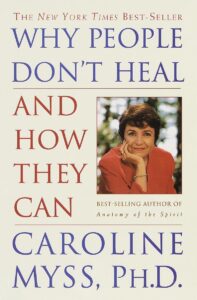

by Cindy Baxter | Jun 23, 2024 | General
Are you following your heart or letting your mind lead the way? In today’s fast-paced world, it’s easy to get caught up in the pursuit of material success, social status, and the approval of others. However, true happiness and fulfillment come from living an authentic life, one that aligns with your deepest desires and passions. This blog post will explore the journey of finding and living your purpose, embracing your spiritual path, and discovering the profound joy that comes from following your heart.
“The best and most beautiful things in the world cannot be seen or even touched – they must be felt with the heart.”
– Helen Keller
Follow Your Heart; It Knows Where Happiness Lives.
Living an Authentic Life
Are you living an authentic life? Or are you living for money, status, or someone else’s happiness? It’s a question that demands deep reflection. Often, we get caught up in societal pressures and expectations, chasing after financial success, social status, or approval from others, believing these external achievements will bring us happiness. But what does it mean to live authentically? It means aligning our actions with our true values and desires, embracing our unique journey, and finding fulfillment from within rather than from external sources.
The Pursuit of Money
When we live for money, we might find ourselves constantly striving for more—more income, more possessions, more material wealth. This endless chase can become all-consuming, making us lose sight of what truly matters. While financial stability is important for a comfortable life, making it the sole focus can lead to a never-ending cycle of dissatisfaction. The pursuit of money can overshadow our true passions and the things that genuinely bring us joy. For instance, you might sacrifice your hobbies, time with loved ones, or personal well-being for the sake of earning more. Over time, this can lead to burnout and a profound sense of emptiness. Instead, finding a balance where financial stability supports your passions and values can lead to a more fulfilling life.
The Desire for Status
Living for status means seeking validation and recognition from others. Therefore, it involves molding our lives to fit societal standards of success, often at the expense of our true desires and values. This can create a disconnect between who we truly are and the image we present to the world. For example, you might pursue a high-powered career because it is seen as prestigious, even if it doesn’t align with your personal interests or bring you joy. Over time, this disconnect can lead to feelings of emptiness and unfulfillment. True fulfillment comes from aligning your life with your authentic self and not from the accolades and approval of others. When you live authentically, you attract genuine respect and admiration for who you are, not just what you achieve.
Living for Others’ Happiness
Living for someone else’s happiness is another common trap. Prioritizing the needs and expectations of others—family, friends, or society—over our own can lead to resentment and a loss of self. While it’s important to care for and support those we love, completely sacrificing our own happiness for the sake of others is detrimental. You might find yourself constantly trying to please others, suppressing your own needs and desires. Over time, this can lead to feelings of resentment and a sense of being unfulfilled. It’s essential to find a balance where you can support and care for others while also nurturing your own happiness and well-being. When you live authentically, you can offer genuine support to others from a place of fulfillment and inner peace.
Embracing a Spiritual Life
If you’re finding it challenging to navigate these aspects of life, embracing spirituality can be a transformative step. Spirituality helps you connect with your true self and understand your higher purpose. For more insights on this journey, you can read my blog on 10 Reasons to Embrace a Spiritual Life. This can provide you with valuable perspectives on how spirituality can guide you towards a more authentic and fulfilling life.
My Personal Journey
For most of my life, I believed that following my heart in my career as a portrait photographer was enough. My work brought me immense joy and satisfaction, and I cherished the creative process of producing family heirlooms.
However, I also lived in my head, driven by the ego’s demands for more—more work, more recognition, more money. Consequently, I worked relentless hours, often at the cost of my well-being, sacrificing intimate relationships, friends, and the blessing of motherhood.”
I came to realize that living for money, status, or others’ approval did not bring me true fulfillment. It was a hard lesson to learn, but it opened my eyes to the importance of living authentically and embracing my spiritual path. After six decades on this earth, I finally understand that true happiness comes from living in alignment with our heart’s desires, nurturing our passions, and prioritizing what genuinely brings us joy.
Waking Up to the Truth
Don’t wait until near the end of your life, like me, only now coming to the realization that life is more than just a game of accumulating wealth and status. Additionally, the last few years of my life were transformational for me. Spirituality opened my eyes to who we really are and why we are here. We are spiritual beings having a human experience, and our purpose is to spread love and light, and to help others find their own path to happiness and fulfillment.
When you realize that life is a game we play over and over again until we “get” it—until we open our eyes to our true selves—it changes everything. We are here to learn, grow, and evolve. Our purpose is not to chase material success, but to find inner peace and to help others do the same.
Are You Living Your Purpose?
Are you living your purpose? Nevertheless, finding and living your purpose involves listening to your heart and aligning your actions with your true self. It means doing God’s work, not in a religious sense, but as a spiritual being committed to spreading love and light.
How to Find Your Purpose and Live Authentically
1. Listen to Your Heart: Pay attention to what truly brings you joy and fulfillment. Your heart knows what’s best for you.
2. Embrace Spirituality: Connect with your spiritual self. Understand that you are here for a higher purpose.
3. Spread Love and Light: Make it your mission to spread love and positivity wherever you go. Heal yourself, and in doing so, you will help heal others.
4. Trust in a Loving God: Believe that a loving God wants you to live a happy, stress-free, and peaceful life. He showed me the way to inner peace, and I am here to share that path with you.
5. Live Authentically: Be true to yourself. Let go of societal expectations and live a life that is genuine and fulfilling.
My Purpose on This Earth
I believe that my purpose on this earth is to guide you to a path of peace. To teach you to fear nothing, fear no one. Spread your love and light to everyone, every day. Let go of everything that does not serve you. Believe that no matter what, everything will be okay, and know that love is ALWAYS the answer.
I believe that I experienced the heartache, heartbreak, and turmoil in my life to prepare me for this mission. My journey through the Dark Night of the Soul and my subsequent Spiritual Awakening have shaped me and given me the strength and wisdom to help others on their spiritual journeys. These challenges taught me the profound importance of resilience, compassion, and self-love, which are essential elements in the quest for inner peace.
Moreover, I have been blessed with the ability to channel ethereal beings, my Angel guides, who are teaching me life lessons so that I may teach them to others. They are guiding me on my path of resilience, strength, and spiritual growth, providing profound insights and support.
If you’re interested in learning more about spirituality and my journey to peace, follow me on this blog. Explore my other posts and feel free to ask any questions you may have. Together, we can embark on this journey towards a more fulfilled and spiritually enriched life.
Reflecting on Your True Happiness
Are you living authentically, or are you caught in the pursuit of external measures of success? Are you living a lie? Are you truly happy, deep down inside? Consider what truly makes your heart sing and brings you spiritual peace. Remember, it’s never too late to live happily ever after.
The Path to Authentic Living
Living authentically means making choices that align with your true self and values, rather than succumbing to external pressures and expectations. Whether it’s the pursuit of money, status, or the happiness of others, these external factors should not overshadow what truly brings you joy and fulfillment. By reflecting on your life and making conscious choices that align with your heart, you can find a deeper sense of purpose and happiness. Moreover, always remember that love plays a crucial role in living authentically. To explore this further, check out my blog on 5 Spiritual Reasons Love is Always the Answer. Love, both for yourself and others, is a powerful force that can guide you towards a life of joy and peace.
By integrating these practices and perspectives, you can start living a life that truly reflects who you are and what you value most.
Check out these YouTube videos for guidance on how to follow and listen to your heart, and start your journey towards a more authentic and joyful life today.
How to Really LISTEN TO YOUR HEART (youtube.com)
GUIDED MEDITATION: UNIFYING THE HEART AND MIND 111HZ 174HZ 372HZ 528HZ 639HZ 777HZ 963HZ (youtube.com)
Following my heart,
Cindy
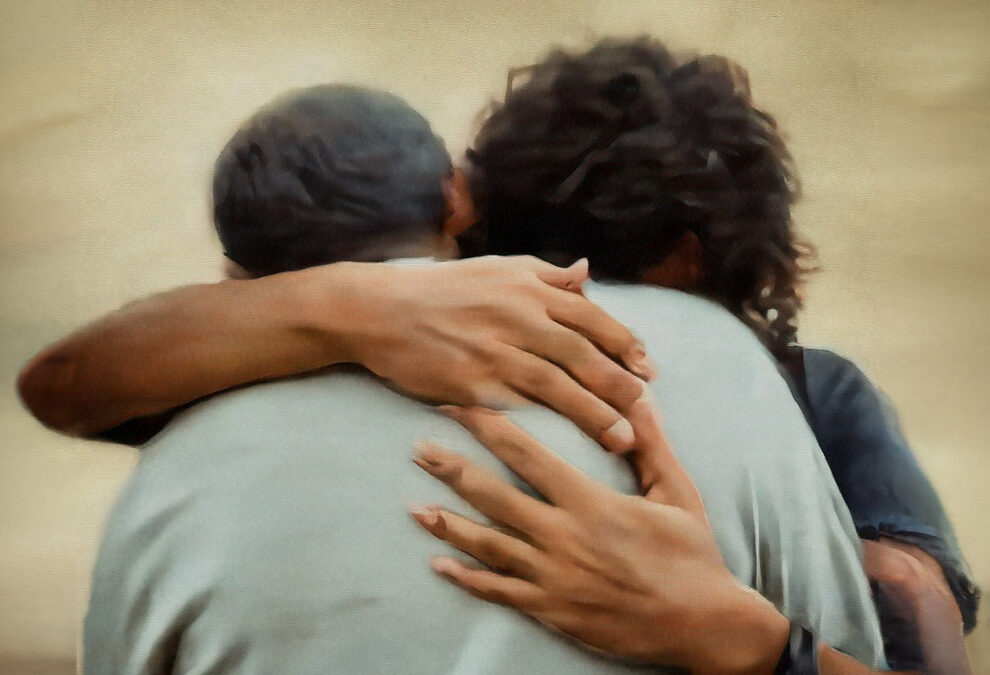
by Cindy Baxter | Jun 23, 2024 | General
The healing power of forgiveness is a transformative force that can liberate you from the chains of past hurts. Release the heavy burden of resentment and open your heart to peace and healing.
The Healing Power of Forgiveness: Reclaiming Your Light
“The weak can never forgive. Forgiveness is the attribute of the strong.” – Mahatma Gandhi
Understanding the Healing Power of Forgiveness 
For many of you, hearing “Forgive them” can feel like a slap in the face, but please, hear me out. This message doesn’t come lightly. I’ve been where you are—hurt, betrayed, discarded like yesterday’s trash. And yes, it hurt deeply. The sting of betrayal and the ache of abandonment can be soul-crushing. But the transformative power of forgiveness is profound and liberating. It’s like a gentle balm that soothes the deepest wounds, allowing your heart to mend and your spirit to soar once more.
Some of you have experienced pain far deeper than mine, betrayals that seem utterly unforgivable. I understand and I’m sorry you had to experience this pain. Just take a moment—close your eyes and consider how living in the shadow of that pain has served you. I’m guessing it hasn’t been a source of strength or comfort.
Instead, it has likely stirred bitterness, hardening your heart and dimming your spirit. The joy, the vibrant light within you meant to shine brightly and warm the world around you, has been dulled. It’s as if a storm cloud has taken permanent residence over your soul, shading everything you encounter. This relentless focus on the wrongs done to you is not only stealing your light but allowing someone else’s actions to control your life.
Reliving the betrayal and pain over and over again only keeps you trapped in a cycle of suffering. For more insights on how to release this pain, you may find my blog post, “Letting Go; Healing Our Wounds,” helpful.
You Deserve the Healing Power of Forgiveness
You deserve to be free—a true, radiant version of yourself. Holding onto that pain, letting it fester, only binds you to the very anguish you yearn to escape. You might think forgiveness is a gift to the one who hurt you, but in reality, it’s the key to unlocking your own shackles.
Imagine, just for a moment, how it would feel to let that heavy burden drop from your shoulders. To step out of the shadow and into the light. Your soul finds peace, your heart softens, and your spirit begins to illuminate once more. The world, aching for your light, suddenly starts to look a little brighter.
The Journey of Healing Through Forgiveness
Forgiveness isn’t easy, nor does it mean condoning or forgetting the harm caused. It’s a deeply personal journey—one where you reclaim your power, redefine your story, and rediscover your light. In this act of grace, you set yourself free, allowing your soul to breathe and your heart to sing again.
5 Steps to Embrace the Healing Power of Forgiveness
Practice Self-Compassion
Take a deep breath and acknowledge your pain. Understand that your feelings are valid. Give yourself the kindness you would offer a dear friend. Healing isn’t linear; it’s a journey with ups and downs.
Practicing self-compassion means being gentle with yourself. When we experience hurt and betrayal, it’s easy to fall into self-blame or harsh self-criticism. Instead, recognize that you are human and it’s okay to feel hurt. Treat yourself with the same kindness and patience you would offer someone you care deeply about. This approach not only soothes your emotional wounds but also creates a nurturing environment for healing.
To elaborate further, self-compassion involves three main components: self-kindness, common humanity, and mindfulness.
 Self-Kindness in Forgiveness
Self-Kindness in Forgiveness
Being warm and understanding toward yourself when you suffer, fail, or feel inadequate, rather than ignoring your pain or being self-critical, is crucial. Instead of harshly judging and criticizing yourself for various inadequacies or shortcomings, self-compassion means you are kind and understanding when confronted with personal failings. Remember, the power of forgiveness isn’t about absolving others; it’s about liberating yourself from the grip of past hurts. You may try to change in ways that allow you to be healthier and happier, but this is done because you care about yourself, not because you are worthless or unacceptable as you are.
Common Humanity in Healing through Forgiveness
Recognizing that suffering and personal failure are part of the shared human experience. Instead of feeling isolated when things go wrong, it helps to remember that you are not alone in your suffering. Everyone goes through tough times, and everyone experiences failure at some point. This awareness can reduce feelings of isolation and self-pity, making it easier to be kind to yourself.
Mindfulness in the Healing Power of Forgiveness
Holding your painful thoughts and feelings in balanced awareness, rather than over-identifying with them or trying to suppress them. This involves being aware of your thoughts and emotions without judgment, allowing yourself to feel and express them without being overwhelmed. Mindfulness requires that we not “over-identify” with thoughts and feelings, so that we are caught up and swept away by negative reactivity. It’s about acknowledging your feelings and allowing yourself to feel them without becoming consumed by them.
Building Resilience Through Self-Compassion
Moreover, self-compassion helps to build resilience. When you are compassionate to yourself, you are more likely to recognize when you need support and to seek out resources that can help you cope. This might include reaching out to friends or family, seeking therapy, or engaging in activities that bring you joy and fulfillment.
Fostering a Positive Outlook
In addition, self-compassion can foster a more positive outlook on life. By being kind to yourself, you can reduce the impact of negative emotions and increase your overall sense of well-being. This doesn’t mean ignoring or suppressing negative emotions, but rather acknowledging them and addressing them in a healthy and constructive way.
Self-Compassion and Responsibility
Finally, self-compassion is not about letting yourself off the hook or avoiding responsibility. It’s about recognizing your humanity and treating yourself with the same care and concern that you would offer to others. It’s about being your own ally rather than your own worst critic. By practicing self-compassion, you create a supportive inner environment that allows for growth, healing, and transformation.
Understand the Why in the Forgiveness Journey
Delve into the reasons behind the actions of those who hurt you. This doesn’t mean excusing their behavior, but understanding their perspective can sometimes bring clarity and soften your resentment. It allows you to see them as flawed humans rather than symbols of your suffering.
Gaining Insight into the Why
When we try to understand the why, we are not looking to justify the actions that caused us pain but to gain insight into the underlying reasons. This could involve recognizing that the person who hurt you may have acted out of their own pain, fear, or insecurity. By doing so, you shift your focus from seeing them as perpetrators to viewing them as imperfect individuals with their own struggles. This shift can reduce the intensity of your resentment and open the door to empathy and forgiveness.
As I became more enlightened and aware of the human condition through my spiritual journey, I found it easier to forgive. I now feel compassion for those who hurt me, imagining what they must have gone through in their own lives to cause such pain to another. The mantra, “hurt people, hurt people,” is unfortunately true. However, “healed people, heal people,” and that’s why I share this blog with you today.
The Spiritual Perspective
If you look at it from a spiritual standpoint, consider that every soul is on its own unique journey, learning and evolving through various experiences. The person who hurt you may be grappling with their own spiritual lessons and challenges. Their actions, while hurtful, might stem from unresolved issues or karmic patterns that they are yet to overcome. By viewing their actions through a spiritual lens, you may find it easier to cultivate compassion and forgiveness.
Recognizing Inner Turmoil
Recognizing that their behavior is a reflection of their own inner turmoil and not a measure of your worth can help you release the hold of resentment and move towards a state of peace and understanding.
Learning and Growth Through Forgiveness
Sometimes, our soul needs the lessons brought by those who hurt us to foster growth and evolution. This perspective helps us see the interconnectedness of our experiences and the shared journey of healing and personal development.
This was true for me. My most recent betrayal, though excruciatingly painful at the time, became a profound gift. It broke my heart wide open, allowing the light of God and the love of my life to enter. Through this experience, I discovered the truest love of all: self-love. What once felt like a devastating wound transformed into a pivotal moment of healing and empowerment, teaching me to embrace my worth and stand in my power.
Embracing Self-Love Through Betrayal
Every betrayal I experienced in my life was a steppingstone to get me where I am today. I had to face betrayal repeatedly throughout my life to finally grasp the lesson of self-love and the importance of standing in my own power. These painful experiences have ultimately led me to a place of profound personal growth and spiritual enlightenment.
Now, I understand that each betrayal was not just a wound, but a crucial part of my journey toward self-empowerment and inner peace. Embracing self-love has transformed my perspective, allowing me to see these betrayals not as setbacks, but as essential steps in my evolution.
Establish Boundaries as Part of Forgiveness
Forgiveness doesn’t mean you have to allow that person back into your life. Set healthy limits that protect your well-being. These boundaries are acts of self-respect, ensuring you don’t return to a harmful situation.
Setting boundaries is crucial in protecting your emotional health. This means deciding how much contact you want to have with the person who hurt you or setting clear guidelines on what behaviors you will no longer tolerate. Boundaries are not about building walls but about creating safe spaces where you can heal and grow without the fear of being hurt again. They are essential for maintaining your peace and ensuring that you prioritize your own well-being.
How to Establish Boundaries for Healing
Setting boundaries involves clear and honest communication about your needs and limits. It’s about defining what is acceptable and unacceptable behavior in your interactions with others. Boundaries help create a sense of safety and predictability, which is vital for emotional healing and well-being.
Why Boundaries Are Important in Forgiveness
– Protect Emotional Health: Boundaries help safeguard your mental and emotional well-being by preventing further harm and reducing stress.
– Promote Self-Respect: Setting boundaries is a way of valuing yourself and recognizing your right to be treated with dignity and respect.
– Facilitate Healing: Clear boundaries create a safe environment where you can focus on your recovery and personal growth without the constant threat of being hurt again.
– Encourage Healthy Relationships: Boundaries help define healthy interactions, promoting mutual respect and understanding in relationships.
– Prevent Resentment: By clearly stating your limits, you avoid the buildup of resentment that can occur when your needs are overlooked or violated.
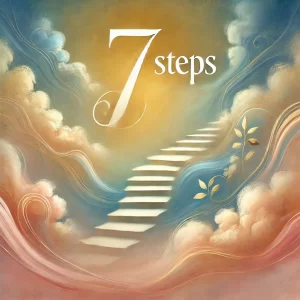 7 Steps to Establish Boundaries in Forgiveness
7 Steps to Establish Boundaries in Forgiveness
1. Identify Your Needs:
– Reflect on what you need to feel safe and respected in your relationships.
– Determine which behaviors are unacceptable and must be addressed.
2. Communicate Clearly:
– Express your boundaries in a straightforward and assertive manner.
– Use “I” statements to convey your needs without blaming or criticizing the other person (e.g., “I need some time alone to process my feelings”).
3. Be Consistent:
– Maintain your boundaries consistently to reinforce their importance.
– Avoid making exceptions that could undermine your efforts to protect yourself.
4. Use Assertive Language:
– Be firm yet respectful in your communication.
– Avoid passive or aggressive language that could lead to misunderstandings or conflict.
5. Anticipate Pushback:
– Understand that not everyone will respect your boundaries initially.
– Stay firm and reiterate your limits as needed, without feeling guilty for prioritizing your well-being.
6. Seek Support:
– Surround yourself with supportive friends, family, or a therapist who can reinforce your efforts and provide encouragement.
7. Self-Care:
– Engage in activities that nourish your body, mind, and soul to strengthen your resolve and maintain your boundaries.
Here are a few examples of boundaries:
Time Boundaries: “I need some alone time after work to unwind.”
Emotional Boundaries: “I cannot discuss this topic right now; it’s too upsetting for me.”
Physical Boundaries: “Please respect my personal space and do not touch me without my permission.”
Communication Boundaries: “I prefer to be spoken to respectfully, without yelling or harsh words.”
By establishing and maintaining boundaries, you create a healthy environment for yourself where healing and personal growth can thrive. These boundaries are a testament to your self-respect and a crucial step in reclaiming your peace and well-being.
Write it Out to Heal Through Forgiveness
Writing can be a powerful tool. Compose a letter to the person who hurt you, pour out your emotions—the anger, the sadness, the betrayal. You don’t have to send it. The act itself can be healing, helping you process and eventually release the hold these emotions have over you.
Writing a letter allows you to express your feelings without the pressure of confrontation. It provides a safe space to articulate your pain, anger, and disappointment. As you write, you may find that putting your emotions into words helps to clarify your thoughts and feelings. It’s a therapeutic process that can lead to emotional release, helping you to let go of the negative energy that has been weighing you down. The goal is not to deliver the letter but to use it as a tool for self-healing and understanding. Remember, the power of forgiveness lies in your ability to release and heal from the past.
There is great power in writing it out, letting it go, and then burning the letter. Watching the flames consume the words can be a symbolic act of release, a tangible way to let go of the pain and transform it into ash. The act of burning the letter represents the final step in freeing yourself from the emotional weight, creating space for peace and healing to take root.
Prompts to Help You Write
– Describe the Pain: “I felt deeply hurt when you…” “The betrayal made me feel…” “Your actions left me feeling…”
– Express Your Emotions: “I am angry because…” “I am sad because…” “I am disappointed because…”
– Acknowledge Your Experience: “This experience has made me realize…” “I learned that I need to…” “I understand now that…”
– Reflect on the Impact: Your actions affected me by…” “Because of what happened, I now feel…” “This has changed my view on…”
– Communicate Your Needs: “In the future, I need to feel…” “I need to set boundaries around…” “For my healing, I need to…”
– Seek Closure: “I am letting go of the hurt because…” “I forgive you because I need to move on from…” “I am choosing to release this pain so I can…”
– Find Gratitude and Positivity: “Despite the pain, I am grateful for…” “This experience has taught me…” “I am focusing on the positive aspects of…”
By addressing these prompts in your letter, you can explore the depth of your emotions and gain a clearer understanding of your experience. This process can help you release the negative energy and move towards healing and forgiveness. Remember, the goal is self-healing, and the act of writing itself is a step towards emotional freedom.
Write a Love Letter to Yourself
After you’ve processed the pain through writing a letter to the person who hurt you, it’s time to turn that same energy inward and write a love letter to yourself. This is a powerful exercise in self-love and affirmation, and an essential part of experiencing the healing power of forgiveness.
Take a quiet moment to sit down with a pen and paper. Write a heartfelt letter to yourself, celebrating all the beautiful and wonderful things about who you are. Reflect on your strengths, your kindness, your resilience, and all the qualities that make you uniquely you. Acknowledge the challenges you’ve overcome and the growth you’ve achieved.
In this love letter, remind yourself that you deserve only the best relationships—ones filled with respect, love, and kindness. Affirm that you are worthy of being treated with dignity and compassion, and that you will no longer tolerate being abused or mistreated.
Pour out your gratitude for your own courage and strength. Express how proud you are of yourself for the journey you’ve undertaken, and for the self-love you are now embracing. This letter is a testament to your journey, a recognition of your worth, and a commitment to your well-being.
Embrace Self-Forgiveness
Remember to include words of self-forgiveness. Acknowledge any mistakes or regrets you may have and offer yourself the same compassion and understanding you would extend to a dear friend. Remind yourself that you are human, and it’s okay to make mistakes. By forgiving yourself, you release any lingering guilt or shame, allowing your heart to heal fully and embrace the healing power of forgiveness. This act of self-forgiveness is crucial in your journey toward self-love and inner peace.
Then, make it a daily ritual to read this letter to yourself. By reading it every day, you reinforce these positive affirmations, reminding yourself of your value and the love you deserve. This exercise is a profound step in healing and reclaiming your inner light through the healing power of forgiveness.
Prompts to Help You Write Your Love Letter
-Celebrate Your Strengths: Reflect on the qualities you admire most about yourself and the strengths that have helped you overcome challenges in your life.
-Acknowledge Your Growth: Consider the obstacles you’ve faced and how you have grown from them. Reflect on the lessons you’ve learned throughout your journey.
-Affirm Your Worth: Think about why you deserve love, respect, and kindness. What makes you unique and valuable?
-Express Gratitude to Yourself: Celebrate what you’re most proud of in your life so far. Reflect on the courage and resilience you’ve shown, even in difficult times.
-Offer Words of Forgiveness: Identify any mistakes or regrets you’re ready to let go of. How can you show yourself the same compassion you would offer a loved one?
-Visualize the Future You: Envision the kind of relationships you want to invite into your life. Write affirmations that remind you of the love and happiness you deserve.
-Commit to Self-Love: Reflect on how you will continue to show love and kindness to yourself. What promises can you make to prioritize your well-being?
Example Opening Lines
“Dear [Your Name], today I want to celebrate the amazing person you are…”
“I am so proud of the strength and resilience you have shown through every challenge…”
“You deserve a life filled with love, joy, and respect, because you are worth it…”
A Note of Encouragement
Dear Reader,
As you sit down to write your love letter, take a deep breath and allow yourself to feel the love and kindness you deserve. This is your moment to celebrate the incredible person you are—your strength, your courage, and everything that makes you uniquely you. Don’t worry about finding the perfect words; let your heart guide your pen. It’s not about perfection—it’s about connection. Speak to yourself as you would to a dear friend who has been through so much yet continues to rise above. Remember, this letter is a safe space for you to pour out your truth, your gratitude, and even your forgiveness. Acknowledge your journey, your growth, and the beauty within you. Let the words remind you of your worth and affirm the love and respect you deserve in your life. Take your time, and when you’re done, read your letter aloud to yourself. Let the words sink in and become a daily reminder of your value and the incredible power of self-love.
With love and encouragement, Cindy
Focus on Gratitude and Positivity
Surround yourself with people who uplift and support you. Engage in activities that bring you joy and fulfillment. By shifting your focus to the good in your life, you create room for positivity to replace the bitterness.
Focusing on gratitude and positivity means actively seeking out the things in your life that bring you joy and fulfillment. This could involve spending time with loved ones who support you, engaging in hobbies that make you happy, or simply taking a moment each day to reflect on what you are grateful for. Gratitude shifts your mindset from what is lacking or painful to what is abundant and joyful. This practice helps to fill your life with positive energy, making it easier to let go of the bitterness and resentment.
Benefits of Focusing on Gratitude and Positivity for Healing
– Improved Mental Health: Regularly practicing gratitude has been linked to lower levels of stress, anxiety, and depression. It helps to cultivate a positive mindset that can enhance overall well-being.
– Enhanced Relationships: When you focus on the positive aspects of your relationships, you are more likely to strengthen your bonds with others. Expressing gratitude to loved ones can deepen your connections and foster mutual support.
– Increased Resilience: A positive outlook can make it easier to cope with adversity. By focusing on what you are grateful for, you build emotional strength that helps you navigate life’s challenges more effectively.
– Greater Life Satisfaction: People who regularly practice gratitude tend to feel more satisfied with their lives. They are more likely to notice and appreciate the abundance around them, leading to a more fulfilling and contented life.
How to Cultivate Gratitude and Positivity for Forgiveness
1. Keep a Gratitude Journal: Write down three things you are grateful for each day. This simple practice can help you focus on the positive aspects of your life and foster a sense of appreciation.
2. Spend Time with Positive People: Surround yourself with individuals who uplift and support you. Their positive energy can be contagious, helping to boost your mood and outlook.
3. Engage in Enjoyable Activities: Pursue hobbies and activities that bring you joy and fulfillment. Whether it’s painting, hiking, reading, or cooking, engaging in what you love can fill your life with positive energy.
4. Practice Mindfulness: Mindfulness involves being present in the moment and appreciating it fully. Practicing mindfulness can help you savor the positive experiences in your life and reduce the focus on negative thoughts.
5. Express Gratitude to Others: Take the time to thank the people in your life who have supported you. Expressing gratitude not only makes others feel appreciated but also enhances your own sense of well-being.
6. Reflect on Positive Experiences: Take moments throughout your day to reflect on positive experiences and achievements. Reliving these moments can help reinforce a positive mindset.
7. Limit Exposure to Negativity: Be mindful of your consumption of negative news, social media, or toxic environments. Instead, seek out positive and uplifting content that inspires and motivates you.
8. Practice Self-Compassion: Treat yourself with the same kindness and understanding that you would offer a friend. Self-compassion helps to foster a positive self-image and encourages personal growth.
Daily Gratitude Practices for Forgiveness
– Morning Reflection: Start your day by thinking of and writing down three things you are grateful for. This sets a positive tone for the day ahead.
– Gratitude Walks: Take a walk outside and notice the beauty around you. Reflect on the things in nature that you appreciate.
– Evening Gratitude: Before bed, think of three positive things that happened during the day. This can help you end your day on a positive note.
By actively focusing on gratitude and positivity, you create a mental and emotional environment that is conducive to healing and growth. This shift in perspective allows you to release bitterness and resentment, making room for joy, fulfillment, and inner peace.
Embrace Forgiveness for Personal Freedom
Remember, forgiveness isn’t about absolving others; it’s about liberating yourself from the grip of past hurts. It’s about stepping into your own power, reclaiming your light, and embracing the peace that comes with letting go. No one is perfect, certainly not us, and understanding that these individuals, too, are flawed and may act out of their own pain can be liberating. Forgiveness in this context is essential for personal freedom and peace.
May you find the courage to forgive and the strength to set your soul free. Embrace the light within you and let it shine brightly. The journey to peace and healing starts with a single step—choosing to let go and forgive. For help with letting go of the pain, you may enjoy my blog post, “Letting Go; Healing The Past.”
If you’re ready to let go of the past and step into a brighter future, explore the transformative potential of healing and forgiveness through spirituality. Together, within the words of this blog, we can unlock your true potential, restore your inner balance, and help you reclaim your light.
On a Personal Note: The Power of Prayer in Forgiveness
For me, the power of prayer for those who have forsaken me has been essential for my healing and inner peace. Forgiving those who betrayed my love and trust wasn’t easy. “Forgive them for they know not what they do.” This phrase became a guiding light, even though it was a tough pill to swallow. But remember, you are not forgiving them for their peace of mind, but for yours.
Living in the gloom and doom of my betrayer’s actions was like being trapped in a never-ending storm. The weight of their betrayal and the constant replay of their hurtful actions cast a shadow over every aspect of my life. It was as if their negativity had taken up residence in my heart, dulling my spirit and clouding my vision. Each day felt heavier, and the bitterness slowly consumed my joy.
Releasing the Storm Through Prayer and Forgiveness
Through prayer, I found a way to release this heavy burden. By praying for those who hurt me, I began to understand that their actions were a reflection of their own pain and struggles, not a measure of my worth. This perspective allowed me to cultivate compassion and empathy, recognizing that they, too, are wounded and hurting.
The act of forgiving them through prayer was transformative. It didn’t excuse their behavior or diminish the pain they caused, but it freed me from the chains of resentment. It allowed me to step out of the shadow of their actions and into the light of my own healing. My heart began to soften, my spirit started to lift, and I could feel my inner peace returning.
 Forgiveness a Gift to Yourself
Forgiveness a Gift to Yourself
Forgiveness became a gift I gave to myself. It was a way to reclaim my power and take back control of my happiness and well-being. It enabled me to move forward with a lighter heart and an open mind, ready to embrace the beauty of life without the weight of past hurts dragging me down.
In forgiving those who betrayed me, I discovered a profound sense of freedom and peace. I could finally breathe deeply, love fully, and live authentically, unburdened by the shadows of the past. This journey of forgiveness through prayer has been a cornerstone of my spiritual growth, teaching me that true peace comes from within and that we have the power to transform our pain into light.
Embrace Forgiveness and Reclaim Your Light
If you’re ready to let go of the past and step into a brighter future, I invite you to explore the transformative potential of forgiveness and healing. Together, we can unlock your true potential, restore your inner balance, and help you reclaim your light.
May you find the courage to forgive and the strength to set your soul free. Embrace the light within you and let it shine brightly. The journey to peace and healing starts with a single step—choosing to let go and forgive.
To delve further into letting go, read my blog post, “Letting Go: Healing The Past”
With a forgiving heart,
Cindy
Below are a few YouTube videos that you may find helpful on your forgiveness journey.
Sadhguru – How to Forgive Someone Who Hurt You [ An Insight on Forgiveness ] (youtube.com)
The Law Of Forgiveness (youtube.com)
Why You Should Forgive People Who Hurt You | Vishen Lakhiani (youtube.com)
A Channeled Note from Angel Guide Leam
Dear Friends,
Please let the burden of betrayal be the catalyst to believe that your betrayer gave you a gift. The gift of awareness that we all are guilty of betrayal in one way, shape, or form. We are all reaping what we sow. We are all learning for the ascension of our souls. Believe that a greater power is guiding you to a path of healing and peace. Understand that reliving your past is not serving you in any way. Reliving the dead past is like delivering dead energy to the living.
Deliver love and light to everyone, every day. Believe that no matter what, everything is going to be okay. Let everything go and know that love is always the answer. These are the keys to happiness.
In eternal love and light,
Leam
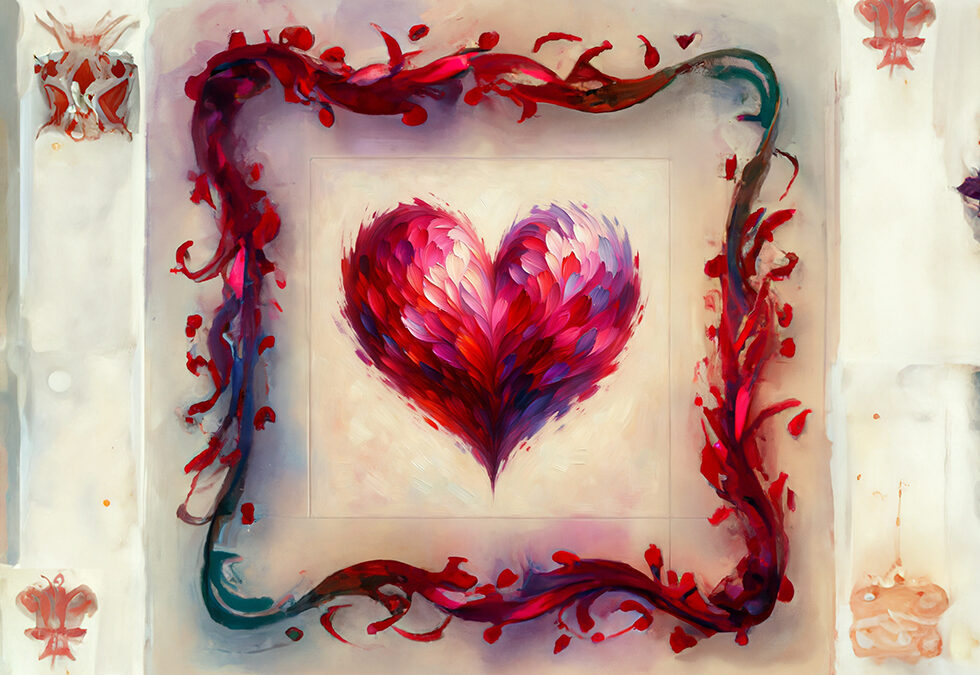
by Cindy Baxter | Jun 23, 2024 | General
In a world often marked by division and strife, understanding the profound spiritual reasons why love is always the answer can bring us closer to a life of harmony and fulfillment. Love transcends differences, heals wounds, and connects us to the divine, offering a path of compassion, unity, and positive energy. Discover how embracing love can transform your life and the lives of those around you.
“Love is the bridge between you and everything.” – Rumi.
5 Spiritual Reasons Why Love is Always the Answer
Unity and Oneness
Love helps us see that we are all connected. It transcends individual differences, reminding us that we are part of a greater whole. When we come from a place of love, we foster harmony and understanding among everyone. This unity brings a sense of belonging and peace, allowing us to work together for the common good.
Healing and Compassion
Love has an incredible power to heal. It soothes emotional wounds and eases suffering. When we show compassion and empathy towards others, we create a space where healing and personal growth can truly happen. Acts of love and kindness not only help others but also promote our own emotional and spiritual well-being.
Positive Energy
Love generates positive energy that can transform lives and situations. This positive energy uplifts and inspires, encouraging us to take kind actions and create a ripple effect of goodness and goodwill. When we approach life with love, we attract positivity and open the door to endless possibilities.
Divine Connection
Love is often seen as the purest form of divine expression. By embracing love, we align ourselves with a higher power and divine will, fostering a deeper connection with the spiritual realm and the universe. This divine connection provides guidance, strength, and a sense of purpose, helping us navigate through life’s challenges with grace.
Purpose and Fulfillment
Living a life centered on love brings a profound sense of purpose and fulfillment. When we act out of love, we align with our true selves and spiritual purpose, leading to a more meaningful, satisfying, and joyful life.
Embrace Love as Your Guiding Star
In the end, love is the answer to everything. It is the force that binds us together, heals our deepest wounds, and fills our lives with purpose and meaning. Love helps us rise above our struggles, see the beauty in our differences, and find joy in the simplest moments. It connects us to the divine, reminding us that we are never truly alone. When we choose love, we choose a path of compassion, understanding, and light. Let love be your guiding star and watch as it transforms your life and the lives of those around you. With love, anything is possible, and life becomes a little bit brighter.
The Beatles Had It Right in 1967: All You Need Is Love
The Beatles had it right back in 1967 with their iconic song “All You Need Is Love.” Released during the height of the Summer of Love, this timeless anthem captured the essence of a generation yearning for peace and unity. The Beatles’ simple yet profound message—that love transcends all barriers and is the fundamental force for positive change—resonates as deeply today as it did over fifty years ago. Their belief in the power of love to heal, unite, and transform remains a guiding light in a world still grappling with division and strife. The Beatles’ wisdom reminds us that love, indeed, is all we need to create a better, more harmonious world.
Listen to this iconic song, The Beatles – All You Need Is Love (lyrics)
Real Love: Embracing Those Who Hate
“Real love is to love those who hate you.” – Mahatma Gandhi.
This powerful quote from Mahatma Gandhi challenges us to elevate our understanding and practice of love. True love is not just about loving those who are kind to us, but also extending love to those who oppose or dislike us. This kind of unconditional love breaks down barriers, fosters forgiveness, and promotes peace. It is a transformative force that can heal deep divisions and build bridges of understanding. By loving those who hate us, we embody the highest form of spiritual love, demonstrating compassion, strength, and a commitment to unity.
Embracing Love and Compassion in Everyday Life
In my now deeply spiritual life, I’ve come to understand the true nature of love and compassion, especially when faced with others’ actions that may initially seem hurtful or frustrating. When someone distances themselves from me, I no longer take it personally. Instead, I recognize that their behavior is a reflection of their own wounds and insecurities. This awareness allows me to respond with empathy rather than defensiveness.
I have also learned to be less reactionary. For instance, if someone cuts me off in traffic, I no longer respond with anger or a rude gesture. Instead of raising my middle finger and shouting profanities, I pause and remind myself that I don’t know their circumstances. They could be rushing to an emergency, desperate to reach a loved one in need. In that moment, I choose to send them love and light, hoping they arrive safely at their destination.
This shift in perspective has profoundly affected my inner peace. Remember, when you throw up your middle finger, you are only one finger away from the peace sign. Choosing peace over anger not only benefits the other person but also preserves your own serenity. Instead of reacting with negativity, I now opt for a kind gesture and a silent prayer. It’s just as easy to wish them well as it is to lash out with anger, and it keeps my spirit calm and centered.
Keep in mind that we are all one. The Bible reminds us, “What you do to another, you do unto me” (Matthew 25:40). This profound message teaches us that our actions towards others are not just against them or God but also against ourselves. When we hurt another person, we are, in essence, hurting ourselves. Conversely, when we show love and compassion, we are uplifting our own spirit along with theirs.
By embracing love and compassion in such everyday situations, we protect our inner peace and contribute to a more harmonious world. Each act of kindness, no matter how small, creates a ripple effect that can transform our interactions and our lives.
Explore More About Love and the Spiritual Reasons why Love is Always the Answer
For further inspiration and insights on the power of love, check out these YouTube videos that delve into its transformative impact on our lives.
What is the real meaning of love in spirituality! (youtube.com)
What Is Love? – Advanced Spiritual Explanation
With my unwavering love,
Cindy

by Cindy Baxter | Jun 23, 2024 | General
In today’s fast-paced world, finding balance and inner peace can seem like an elusive goal. Many people are turning to embrace spirituality to help navigate life’s challenges and uncertainties. Embracing spirituality is more than just adopting a belief system. It’s about connecting with a higher power, discovering a deeper sense of purpose and fulfillment, and realizing that love is always the answer. To dive deeper into why love is essential on this journey, check out my blog post 5 Spiritual Reasons why Love is Always the Answer. Whether you’re seeking to reduce stress, find meaning, or foster a greater sense of connection, here are ten compelling reasons to embrace spirituality and transform your life.
“Spirituality is not about religion or rituals; it’s about connecting with the essence of life, understanding our purpose, and finding inner peace amidst the chaos.” – Cindy Baxter
10 Reasons to Embrace a Spiritual Path: Transform Your Life
Living a spiritual life can be deeply fulfilling and enriching. Here are ten reasons to consider embracing a spiritual path:
1. Inner Peace
Embrace spirituality to find inner peace and tranquility, reducing stress and anxiety in your life.
The peace, calm, and serenity that embracing spirituality has instilled in me have been astounding. I’ve found peace of mind in the understanding that life isn’t meant to be taken so seriously. We are here to experience and play the game of life. When our time here is over, we will continue to exist in another realm. We will be preparing for our next adventure. This perspective has profoundly eased my worries, allowing me to live more fully in the present and embrace each moment with a sense of peace and purpose.
2. Purpose and Meaning
Spirituality provides a sense of purpose and meaning, helping you understand your role in the universe and the bigger picture of life.
Discovering how to embrace spirituality has illuminated my true purpose as an energy healer, blogger, and teacher of spirituality. The experiences of my life, although difficult, were not in vain. Moreover, each challenge and moment of pain was a steppingstone leading me to this path. Embracing spirituality allowed me to see that my struggles were shaping me into someone who could empathize with and guide others through their journeys. Understanding this bigger picture has given me a profound sense of purpose, knowing that my story can inspire and help others find their own paths to healing and self-discovery.
3. Connection
Embracing spirituality can help you discover a profound connection with everything around you, fostering a newfound appreciation for nature, your everyday blessings, and the people you encounter.
The connection I now feel with everything around me is truly amazing. I have a newfound appreciation for nature, my everyday blessings, and the people I encounter. I understand now how deeply interconnected we all are—everything is one. As we do unto the least of our brothers, we do unto ourselves. This profound realization has deepened my empathy and compassion, allowing me to see the divine in everyone and everything. It has transformed the way I interact with the world, nurturing a sense of unity and love that permeates all aspects of my life.
4. Personal Growth
Spirituality encourages personal growth and self-improvement, helping you become a better version of yourself.
I have experienced tremendous growth through my spiritual journey. Taking care of myself has become a priority, from the food I eat to nurturing my inner peace by setting boundaries and saying no to things that don’t align with my values. People-pleasing to my own detriment is no longer an issue. Now, I am happy to help others, but only if it feels right for my soul. Spirituality has also guided me away from engaging in low vibrational activities like gossip. This realization has fostered a deep sense of compassion and forgiveness, both for myself and others. Embracing spirituality has transformed my life, enabling me to grow into a more authentic, compassionate, and empowered version of myself.
5. Resilience
Embrace spirituality to enhance your ability to cope with adversity, providing strength and resilience during challenging times.
The deep understanding I now have of my journey here on earth has been transformative. “Life is happening for you, not to you” is a mantra I profess not only to myself but to others during their times of hardship. When you fully embrace this understanding, you can sit back and sometimes even laugh at the absurdity of letting little things get under your skin. This perspective allows me to embrace the lessons life offers and move on with grace and ease. In the face of adversity, this spiritual resilience provides a solid foundation, reminding me that every challenge is an opportunity for growth.
6. Health Benefits
Studies suggest that spiritual practices can lead to improved mental and physical health, including lower blood pressure and increased longevity.
Since embracing spirituality, I’ve experienced remarkable health benefits. My mental clarity has improved. I feel a profound sense of calm and balance in my daily life.I’ve noticed my stress levels have significantly decreased, and I approach challenges with a more relaxed and positive mindset. My physical health has also seen improvements; I feel more energized and resilient. Embracing spiritual practices has truly transformed my overall well-being, reinforcing the connection between mind, body, and spirit, and helping me lead a healthier, more fulfilling life.
7. Joy and Gratitude
A spiritual life often leads to a greater sense of joy, contentment, and gratitude for the simple pleasures of life.
Living a spiritual life has brought immense joy and gratitude into my life. I find contentment in the small, everyday moments that I once overlooked. Whether it’s the beauty of a sunrise, the gentle rustle of leaves, or a kind word from a friend, I now cherish these experiences deeply. This shift in perspective has filled my days with a profound sense of happiness and appreciation. Living a spiritual life has taught me to celebrate the simple pleasures and to be thankful for every moment, making my journey through life richer and more fulfilling.
8. Ethics and Morality
Spirituality can provide a moral compass, guiding your decisions and actions based on principles and values.
Embracing spirituality has profoundly influenced my sense of ethics and morality. Furthermore, I strive to live with integrity, kindness, and compassion. I treat others with the same respect and empathy I wish to receive. This moral compass helps me navigate life’s challenges with a clear conscience, knowing that my choices are aligned with my deepest beliefs. Living in accordance with these spiritual values has not only enriched my personal life but has also positively impacted my relationships and interactions with others.
9. Fulfillment
Many people find that spirituality brings a deep sense of fulfillment and a higher level of satisfaction with life.
Spirituality has brought an unparalleled sense of fulfillment and contentment. It has filled my life with a profound purpose and a deeper understanding of my place in the world. Each day feels more meaningful as I align with my spiritual path and connect with my higher self. This sense of fulfillment goes beyond material success or external achievements; it’s an inner peace and satisfaction that comes from living authentically and in harmony with my values.
10. Connection with the Divine
For those who believe in a higher power or a divine presence, spirituality offers a path to connect with and seek guidance from the divine.
Spirituality has opened a profound connection with God, the Divine, Source, the Universe—whatever you decide to call the higher power that guides us all. This relationship has become a source of strength, guidance, and comfort in my life. Through prayer, meditation, mindfulness, and daily reflection, I feel a deep sense of communion with this higher power. This connection reassures me that I am never alone and that there is a greater purpose to my existence. Seeking and receiving guidance from the Divine has brought clarity to my decisions and peace to my heart, enriching my life with a sense of purpose and direction.
Spirituality is a deeply personal journey, and what brings meaning and purpose to one person’s life may differ from another’s. It’s important to explore and define your own spiritual path based on your beliefs and experiences. I invite you to embrace a life of spirituality, to connect closely with the Divine, and to walk with me on a path to peace, leaving life’s illusions behind.
“Spirituality is not a belief system or ideology. It is the surrender of one’s ego to the higher power within and around us, creating a path to peace, love, and true understanding.” – Cindy Baxter
Explore these YouTube videos to deepen your understanding of spirituality, its practices, and how it can transform your life.
What Is Spirituality? – The BEST Explanation You Need To Hear (youtube.com)
Wayne Dyer’s Unique Perspective On Awakening Spiritually [What Being Spiritual Is About] (youtube.com)
Michael Singer – Spirituality – Maximizing the Results of Your Efforts (youtube.com)
With Love, Light, and Eternal Gratitude,
Cindy Baxter





 Let Me Guide You on Your Path to Peace
Let Me Guide You on Your Path to Peace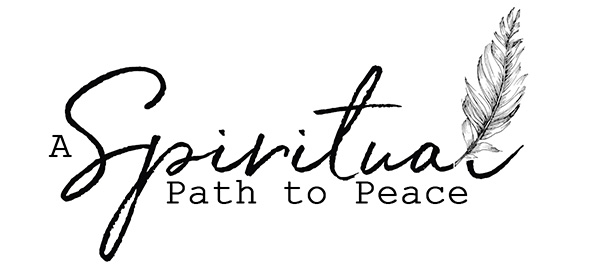

 Common Life Challenges in Letting Go
Common Life Challenges in Letting Go
 Steps Toward Letting Go and Healing the Past
Steps Toward Letting Go and Healing the Past
 Here are some strategies that might help you in the process of letting go:
Here are some strategies that might help you in the process of letting go:
 Practicing Self-Care
Practicing Self-Care



 Self-Kindness in Forgiveness
Self-Kindness in Forgiveness


 7 Steps to Establish Boundaries in Forgiveness
7 Steps to Establish Boundaries in Forgiveness


 Forgiveness a Gift to Yourself
Forgiveness a Gift to Yourself


